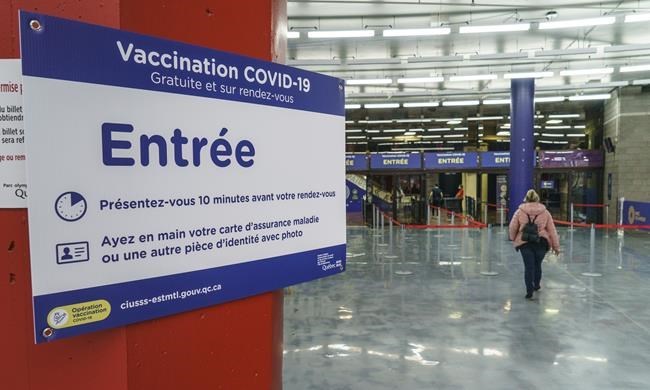Authorities in several provinces expressed concern on Monday that the recent rise in COVID-19 cases was putting renewed strain on the health-care system, as Quebec and Ontario brought in new restrictions to contain the spread of the virus.
Ontario on Monday reported nearly 6,000 new COVID-19 cases over a two-day span, and the Peel region west of Toronto announced it was closing all schools for two weeks to slow transmission and protect students and staff.
The province set a new all-time high for the number of patients in intensive care on Monday, with 494. Many of those cases are in the Greater Toronto Area, prompting hospitals to transfer 88 patients to other regions to help address capacity issues.
The sobering numbers prompted the chief medical officers for Toronto, Ottawa and Peel to ask the Ontario government to implement stricter measures, including a provincewide stay-at-home order.
A letter dated Sunday and signed by Dr. Eileen de Villa, Dr. Vera Etches and Dr. Lawrence Loh cited variants of concern, the hospitalization of younger patients and high intensive care unit occupancy as reasons justifying more restrictions. In the letter, which was published on Etches' Twitter account, they argued the order is necessary "to prevent and mitigate large scale morbidity and mortality and irreparable strain on the health-care system."
Toronto Mayor John Tory announced he is working on a plan to vaccinate high-risk workplaces. He said the province needs to go further by working with the federal government to expand paid sick leave programs to help workers stay home and self-isolate.
The Ontario government has said it will not duplicate the paid sick leave program run by Ottawa, but Tory said rising case counts and the resulting pressure on the province's hospitals show that approach needs to be reconsidered.
"If paid sick days' time hadn't come before this ... then the time has certainly come now when we're in the third wave, and it is taking an even worse toll, it would seem, in terms of ICU occupancy, and hospital overload," Tory said.
Quebec Health Minister Christian Dube also pointed to the situation in hospitals Monday as the province added five regional municipalities south of Quebec City to a list of cities that will have to abide by strict lockdown rules.
"The situation in our hospitals is concerning, hospital capacity in intensive care is fragile," Dube wrote on Twitter. Quebec currently has 123 people in intensive care for COVID-19, which is still well below the stated capacity of 383.
The province announced Sunday that non-essential businesses and many cultural venues must close, schools will move to virtual learning and the overnight curfew will be advanced to 8 p.m. from 9:30 p.m. starting Monday in five parts of the Chaudiere-Appalaches region.
Dube said officials are also worried about the Montreal area, which he described as "under pressure," although the province has not yet announced new measures for the metropolis.
New Brunswick's chief medical officer expressed concerns over hospital overcrowding in the hard-hit Edmundston area, in the northwest of the province, where cases have been linked to the variant of the novel coronavirus first identified in the U.K.
"The U.K. variant brings with it a higher transmission rate, but it also brings a higher risk of mortality and morbidity and a higher risk of hospitalizations and ICU admissions," Dr. Jennifer Russell said.
Over the weekend the health network that includes the Edmundston hospital said some patients may have to be transferred if the situation doesn't improve.
Canada's chief public health officer said the jump in COVID-19 cases in recent weeks and the rising proportion of cases involving more contagious variants were resulting in more hospitalizations.
"The rise in severe and critical illnesses is placing renewed strain on the health system and health-care workforce," Dr. Theresa Tam said in a statement.
She said that while deaths have continued to level off despite the rise in cases, there is concern this trend could shift, especially since the more contagious variants have been linked to more severe illnesses and deaths.
Vaccination efforts took a hit in Manitoba, where officials announced some 7,200 vaccination appointments set for Monday to Thursday of next week would have to be rescheduled due to a delay in shipments of the Moderna vaccine.
The government said the delay would affect appointments at so-called "pop-up" clinics in smaller communities across the province, including Steinbach, Portage la Prairie, Dauphin and Swan River.
Not all provinces had bad news to report, however. Newfoundland and Labrador reported that it has had no new cases for four straight days and counts just four active cases.
This report by The Canadian Press was first published April 5, 2021.
— With files from Shawn Jeffords in Toronto and Kevin Bissett in Fredericton
Morgan Lowrie, The Canadian Press




